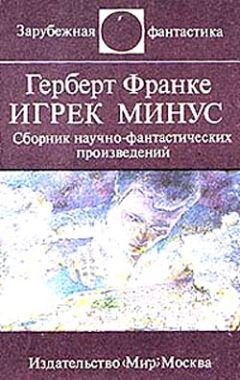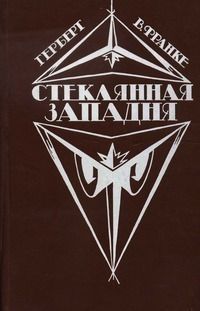Рэй Брэдбери - Тёмный карнавал (Dark Carnival), 1947
He stood before the house as he watched the lights turned on and turned off more than a few thousand times as hе counted softly under his breath.
A boy of about fourteen ran up to the house, a football in his hand, and opened the door without unlocking it and went in. The door closed.
Half an hour later, with the morning wind rising, the old man saw a car pull up and a plump woman get out with a little boy three years old. As they walked across the wet lawn the woman looked at the old man and said, "Is that you, Mr. Terle?"
"Yes," said the old man automatically, for somehow he didn't wish to frighten her. But it was a lie. He knew he was not Mr. Terle at all. Mr. Terle lived down the street.
The lights glowed on and off a thousand more times.
The children rustled softly in the leaves.
A seventeen-year-old boy bounded across the street, smelling faintly of the smudged lipstick on his cheek, almost knocked the old man down, cried, "Sorry!" and leaped up the porch steps and went in.
The old man stood there with the town lying asleep on all sides of him; the unlit windows, the breathing rooms, the stars all through the trees, liberally caught and held on winter branches, like so much snow suspended glittering on the cold air.
"That's my house; who are all those people going in and out?" the old man cried to the wrestling children.
The wind blew, shaking the empty trees.
In the year which was 1923 the house was dark. A car drove up before it; the mother stepped from the car with her son William, who was three. William looked at the dusky morning world and saw his house and as he felt his mother lead him toward the house he heard her say, "Is that you, Mr. Terle?" and in the shadows by the great wind-filled oak tree an old man stood and replied, "Yes." The door closed.
In the year which was 1934 William came running in the summer night, feeling the football cradled in his hands, feeling the murky night street pass under his running feet, along the sidewalk. He smelled, rather than saw, an old man as he ran past. Neither of them spoke. And so, on into the house.
In the year 1937 William ran with antelope boundings across the street, a smell of lipstick on his face, a smell of someone young and fresh upon his cheeks; all thoughts of love and deep night. He almost knocked the stranger down, cried, "Sorry!" and ran to open the front door.
In the year 1947 a car stopped before the house, William relaxed, his wife beside him. He wore a fine tweed suit, it was late, he was tired, they both smelled faintly of too many drinks offered and accepted. For a moment they both heard the wind in the trees. They got out of the car and let themselves into the house with a key. An old man came from the living room and cried, "What are you doing in my house?"
"What are you doing in our house?" said William. "Here now, old man, get on out." And William, feeling faintly sick in his stomach, for there was something about the old man that made him feel cold, searched the old man and pushed him out the door and closed and locked it. From outside the old man cried, "This is my house. You can't lock me out!"
They went up to bed and turned out the lights.
In the year 1928 William and the other small boys wrestled on the lawn, waiting for the time when they would leave to watch the circus come chuffing into the pale-dawn railroad station on the blue metal tracks. In the leaves they lay and laughed and kicked and fought. An old man with a flashlight came across the lawn. "Why are you playing here on my lawn at this time of morning?" asked the old man.
"Who are you?" replied William, looking up a moment from the tangle.
The old man stood over the tumbling children a long moment. Then he dropped his flash. "Oh, my dear boy, know now, now I know!" He bent to touch the boy. "I am you and you are me. I love you, my dear boy, with all of my heart! Let me tell you what will happen to you in the years to come! If you knew! My name is William-so is yours! And all these people going into the house, they are William, they are you, they are me!" The old man shivered."Oh, all the long years and time passing!"
"Go away," said the boy. "You're crazy."
"But-" said the old man.
"You're nuts! I'll call my dad!"
The old man backed off and walked away.
There was a flickering of the house lights, on and off. The boys wrestled quietly and secretly in the rustling leaves. The old man stood in shadow on the dark lawn.
Upstairs, in his bed, in the year 1947, William Latting did not sleep. He sat up, lit a cigarette, and looked out the window. His wife was awake. "What's wrong?" she asked.
"That old man," said William Latting. "I think he's still down there, under the oak tree."
"Oh, he couldn't be," she said.
William drew quietly on his cigarette and nodded. "Who are those kids?"
"What kids?"
"On the lawn there. What a helluva time of night to be messing around in the leaves!"
"Probably the Moran boys."
"Hell! At this hour? No, no."
He stood by the window, eyes shut. "You hear something?"
"What?"
"A baby crying. Somewhere . . . ?
"I don't hear anything," she said.
She lay listening. They both thought they heard running footsteps on the street, the front doorknob turn. William Latting went to the hall and looked down the stairs but saw nothing.
In the year 1937, coming in the door, William saw a man in a dressing gown at the top of the stairs, looking down, with a cigarette in his hand. "That you, Dad?" No answer. The man upstairs sighed and stepped back in darkness. William walked to the kitchen to raid the icebox.
The children wrestled in the soft, dark leaves of morning.
William Latting said, "Listen."
He and his wife listened.
"It's that old man," said William, "crying."
"Why?"
"Why does anyone cry? Maybe he's unhappy."
"If he's still there in the morning," said his wife in the dark, "call the police."
William Latting turned away from the window, put out his cigarette, and lay in bed, staring at the shadows on the ceiling that flicked off and on a thousand times, silently. "No," he said at last. "I won't call the police. Not for him."
"Why not?"
His voice almost whispered. "I wouldn't want to do that. I just couldn't."
They both lay there and faintly there was a sound of crying and the wind blew and William Latting knew that all he had to do if he wanted to watch the boys wrestling in the icy leaves of morning would be to reach out with his hand and lift the shade and look, and there they would be, far below, wrestling and wrestling, as the dawn came pale in the eastern sky.
With all his heart, soul, and blood he wanted to go out and lie in the leaves with them, and let the leaves bury him deep as he snuffed them in, eyes wet. He could go out there now . . .
Instead, he turned on his side and could not close his eyes, and could not sleep.
Interim (Time Intervening) 1947( Провал во времени)
Переводчик: Д. Новак
В эту позднюю ночь старик вышел с фонариком из дома для того, чтобы поинтересоваться у мальчишек, по какому поводу они веселятся. Но они ничего не ответили, кувыркаясь в сухих листьях.
Старик вернулся домой и сел, обеспокоенный. Было три часа утра. Он посмотрел на свои руки. Маленькие, бледные и дрожащие – они лежали на его коленях. Он был угловатым, весь как будто состоял из одних суставов, а его лицо, отражавшееся в зеркале над камином, казалось лишь бледным облачком на стекле, запотевшем от дыхания.
Дети тихо смеялись во дворе, в ворохах опавшей листвы.
Выключив фонарик, старик сидел в темноте. И почему он должен так беспокоиться из-за играющих детей? Он не знал. Но три часа ночи – это было слишком поздно для игр на улице. Старик очень замерз.
Послышалось, как ключ поворачивается в замке, и старик встал, чтобы посмотреть, кто бы это мог прийти к нему. Дверь в передней отворилась, и в дом вошли молодой человек и девушка. Они держались за руки и обменивались мягкими и нежными взглядами. Старик удивленно посмотрел на них и воскликнул: "Что вы делаете в моем доме?"
"Что ты делаешь в нашем доме? Ну-ка, старик, убирайся сейчас же!" – ответили они. И молодой человек, взяв старика за руку, обыскал его, чтобы узнать, не украл ли он чего-нибудь. Потом он вытолкнул его за порог, захлопнул дверь и запер ее на замок.
"Это мой дом, вы не можете выставить меня на улицу!" – старик стучал в дверь. Потом он отступил назад, в сумерки раннего утра, и поднял взгляд на окна комнат верхнего этажа, в теплом свете которых двигались тени.
Он спустился вниз по улице, потом вернулся обратно, а мальчишки, не замечая его, все еще кувыркались в опавшей листве, покрытой утренней изморозью.
Старик стоял перед домом и еле слышным шепотом считал – свет в окнах зажегся и погас несколько тысяч раз.
К дому подбежал парень лет четырнадцати с футбольным мячом в руках. Он вошел в незапертую дверь, и она закрылась за ним.
Через полчаса, когда уже подул утренний ветер, перед домом затормозила машина. Из нее вышла полная женщина с трехлетним малышом. Пересекая мокрый газон, она взглянула на старика и спросила: "Это вы, мистер Терл?"
"Да", – машинально ответил старик. Почему-то он не хотел испугать ее. Но он соврал. Конечно, он знал, что он не Терл. Терл жил вниз по улице.
Свет в окнах зажегся и погас еще несколько тысяч раз.
Дети тихо шуршали в листве.
Семнадцатилетний юноша в один прыжок перескочил через улицу, принеся слабый запах губной помады, смазанный отпечаток которой был на его на щеке. Он чуть не сбил старика с ног, извинился и, взбежав по ступенькам крыльца, вошел внутрь.



